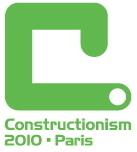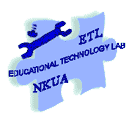Many teachers and educational researchers are unclear about the meaning of constructionism
or its implications for learning and instruction. This paper discusses a number of frequently aired
educational dichotomies in order to situate and clarify the constructionist perspective. An
elaboration of the contrary positions expressed by proponents of both sides of these dichotomies
offers insights into the sense and purpose of constructionist ideas and approaches. It argues for
the unique and valuable benefits of constructionism as a powerful learning paradigm.
There are several false dichotomies in education: tradition versus reform, structure versus
freedom, knowledge versus creativity, instruction versus construction. They are false because
they are often viewed as diametrically opposed adversarial positions. It’s as though if you are on
one side you can’t possibly concede anything to the other. These strongly biased one-sided
oppositions remind me of Oliver Selfridge’s characterization of much of the thinking in current
artificial intelligence research—that things must either be true or false—as binary heresy.
This either-or kind of thinking can lead otherwise intelligent people to say unintelligent things.
For example, a few years ago a highly respected Boston economist, assessing the effects of
computer technology in education, wrote: “Computers have proved to be ineffective in education.
How do we know that? Because we’ve had computers in schools for several years now, and
schools are still terrible!” An obvious response: books must really be ineffective, because we’ve
had books in schools for much longer, and schools are still terrible!
Constructionists want to build a critical mass of citizens who reject false and misleading
educational dichotomies, who support instead the creation of learning environments that
integrate the constructive ideas on both sides of tradition and reform, structure and freedom,
knowledge and creativity, instruction and construction. More broadly, constructionists seek to
develop a culture of learning. We would like to develop a national thirst for promoting intellectual
curiosity and creativity. This paper suggests an ambitious thrust toward that end: an intensive
and sustained political and marketing campaign to build a groundswell of support for developing
a rich variety of learning opportunities, both formal and informal, infused with constructionist
ideas and activities. That is an awesome challenge. Large-scale educational change may not be
possible during our lifetime, but there are schools and learning places where constructionist
ideas and culture can flourish even today.


